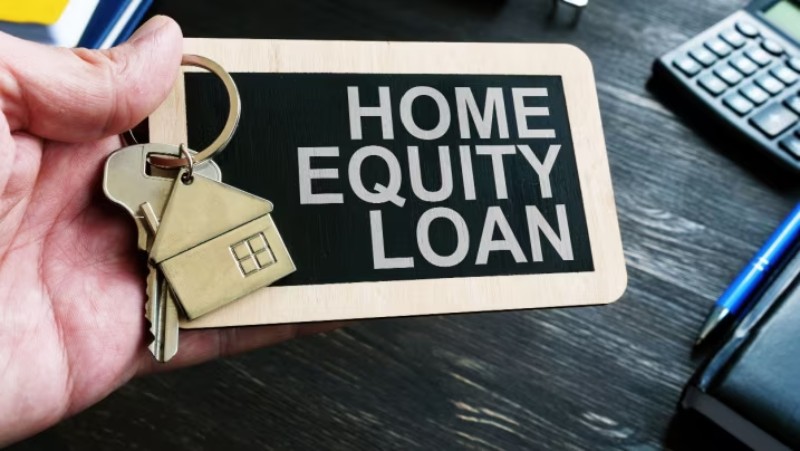Real Estate
What is Home Equity? How to Calculate It?

The amount of your house that you own based on your down payment and past mortgage payments is known as your home equity. Put differently, the difference between the appraised value of your house and the remaining mortgage amount owed to your lender is your home equity.
When your home has sufficient equity, banks and lenders will let you borrow against it to obtain financing. This money can be used for a variety of purposes, such as major expenses, debt consolidation, or home improvements and repairs. However, you must determine how much equity you have in your house before taking on debt against it.
What is home equity?
The market value of your house less the amount of your mortgage loan that is still owed is your home’s equity. Your home’s equity can be a useful tool for wealth creation if you take it out.
When you purchase a home, you can begin with a sizeable equity by making a sizable down payment. Then, as time goes on and you continue to make larger monthly mortgage payments, your equity will rise. If you improve your home to raise its value or if property values rise, your equity may also increase.
How to calculate the home equity
Although it requires some math, the solution is not too difficult. Here’s a four-step formula for figuring out your home equity.
- Have your home’s value assessed
Get in touch with your county assessor, who determines a value each year for property tax purposes, to find out your home’s market value if you’d like an approximate estimate of your equity. Additionally, some online calculators compute your home’s current market value based on local prices using an algorithm.
Most lenders require you to get an on-site appraisal performed by a licensed appraiser when you need to officially ascertain how much equity you have to get a loan or refinance.
- Find the amount owed on your house loan
Your current loan balance will be displayed on your monthly mortgage statement. Make a note of the remaining amount you owe your mortgage lender.
- Determine the equity in your house
The math enters the picture now. Apply this formula:
Your home equity is equal to the appraised value less the outstanding loan balance.
For instance, you have $200,000 in home equity if your house is worth $500,000 and your mortgage balance is $300,000.
- Determine the percentage of your home equity
Next, figure out how much of your house you have already paid for. Divide the amount of equity you have in your house ($200,000 in the example above) by the $500,000 worth of your house. Multiply the result by 100 to get the result (0.4). You have 40% equity in your house.
Can I use the equity in my house as a loan?
A lot of homeowners are taking advantage of their home equity by using their ownership stake as collateral for financing options that are less expensive than taking out a personal loan or credit card.
If you plan to take out a loan against the value of your house, make sure the money will help you in the long run. Additionally, you should always be aware of the risks involved in using your house as collateral to obtain a loan. You risk losing your property if you fall behind on your payments.
Equity loan for a house
Your home serves as collateral for a home equity loan, also known as a second mortgage, which provides you with access to a fixed amount of money at a fixed interest rate. The loan can be used for any purpose, including paying off debt from high-interest credit cards. The amount of equity you’ve accrued in your house determines how much you can get. If you use a home equity loan for certain home improvement projects, you may be able to claim a tax deduction in addition to its predictable monthly repayment schedule.
HELOC
A home equity line of credit, or HELOC, takes collateralized ownership of your house, just like a home equity loan does. A home equity line of credit (HELOC) provides you with access to a revolving credit line at a variable interest rate, as opposed to a fixed one. With a HELOC, you can take out as much money as you need during the draw period, which lasts for 10 years on average and only pays interest. The repayment period begins when the draw period ends, and it is during this time that you must repay the principal balance—the total amount you initially withdrew—as well as any outstanding interest.
Cash-out refinance
When you refinance your primary mortgage and take out a larger new loan, this is known as a cash-out refinance. Together with the equity you have already accrued and can take out in cash, the new loan also includes the remaining amount you owe on your existing mortgage. You can do anything with that large amount of money, like remodeling your house or paying off high-interest credit card debt.
How much of the equity in my house can I borrow?
You can determine how to borrow against your home equity once you know how much of it you have. The loan-to-value ratio, or LTV, is a metric used by lenders to assess your suitability for a home equity loan or line of credit. This is how to figure out your LTV:
- Your loan-to-value ratio is equal to your current mortgage balance / your current home value.
- Usually, lenders let you borrow up to 80% of the value of your house.
How to increase your home’s equity
You can raise the equity in your house in several ways:
- Increase the down payment amount.
- By making extra payments throughout the year, you can lower the balance of your mortgage.
- Renovating your home can raise its value and improve both the inside and outside.
- To find out if the value of your house has increased, get a new appraisal.
Pros and cons of using home equity
Pros
- For major purchases or home remodeling, you can get a cheaper interest rate.
- If you used the money to significantly improve your house, you might be able to write off the interest on the loan against your taxes.
- Although you are free to spend the money however you like, it is advisable to use it to strengthen your financial position.
Cons
- Your home is used as collateral, so if you miss payments or don’t make your loan payments on time, you could lose your property.
- You might not be able to borrow much against your home if its value drops.
- Due to the extended terms of certain home equity loans, you may end up paying a significant amount of interest over time.
Conclusion
You can use the equity in your home to finance a project or cover a significant expense by calculating the approximate amount of equity you have. When interest rates are lower than those on credit cards or personal loans, or when home values are increasing, taking advantage of your equity in your house can be a great resource. But never forget that doing so will put your house at risk and result in additional debt.
-

 Business3 weeks ago
Business3 weeks agoPrakash and Kamal Hinduja: Driving Social and Environmental Change
-
Education4 weeks ago
Fred DuVal: University Leadership as a Critical Resource for Climate Change Research and Life-Saving Solutions
-

 Cryptocurrency3 weeks ago
Cryptocurrency3 weeks agoDesigned For The Masses: How Akasha (AK1111) Is Unlocking Crypto For The Next Billion Users
-

 Health3 weeks ago
Health3 weeks agoThe Hinduja Brothers Commitment to Global Health: Empowering Communities Across Borders
-

 Cryptocurrency4 weeks ago
Cryptocurrency4 weeks agoNexaglobal & Future World Token (FWT): Could This Be the Next Big Crypto Investment of 2025?
-

 Startup2 weeks ago
Startup2 weeks agoCost-Saving Strategies Every Small Business Owner Should Know to Boost Efficiency
-

 Startup3 weeks ago
Startup3 weeks agoMatthew Denegre on the Art of Deal Sourcing: Finding the Right Investment Opportunities
-

 Health2 weeks ago
Health2 weeks agoSt. John’s Community Health Examines Innovations in Pharmacy Access

















